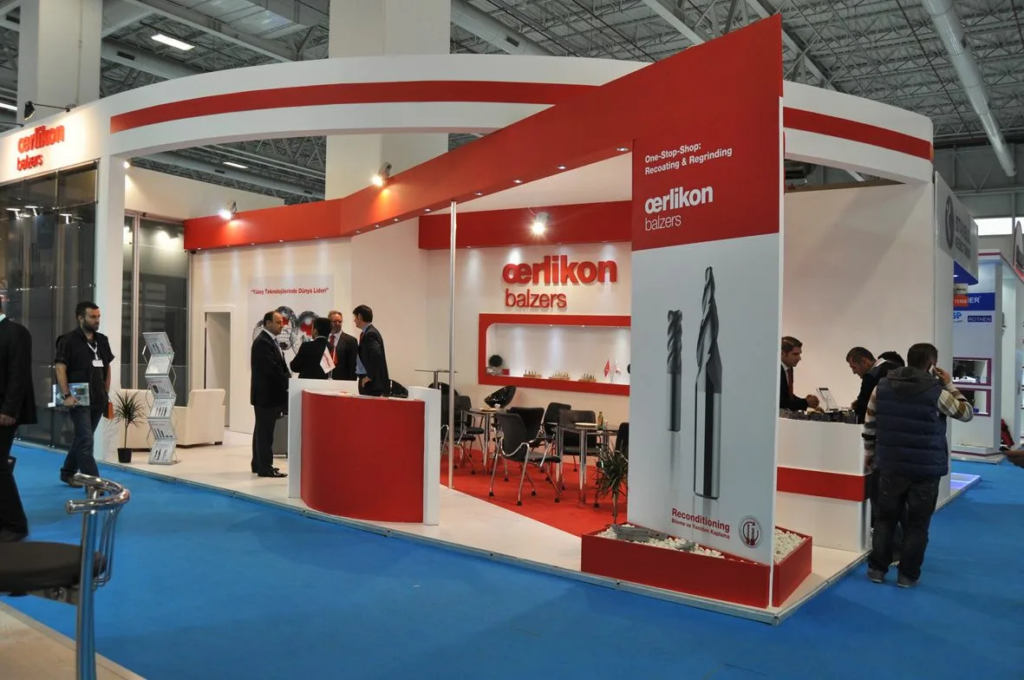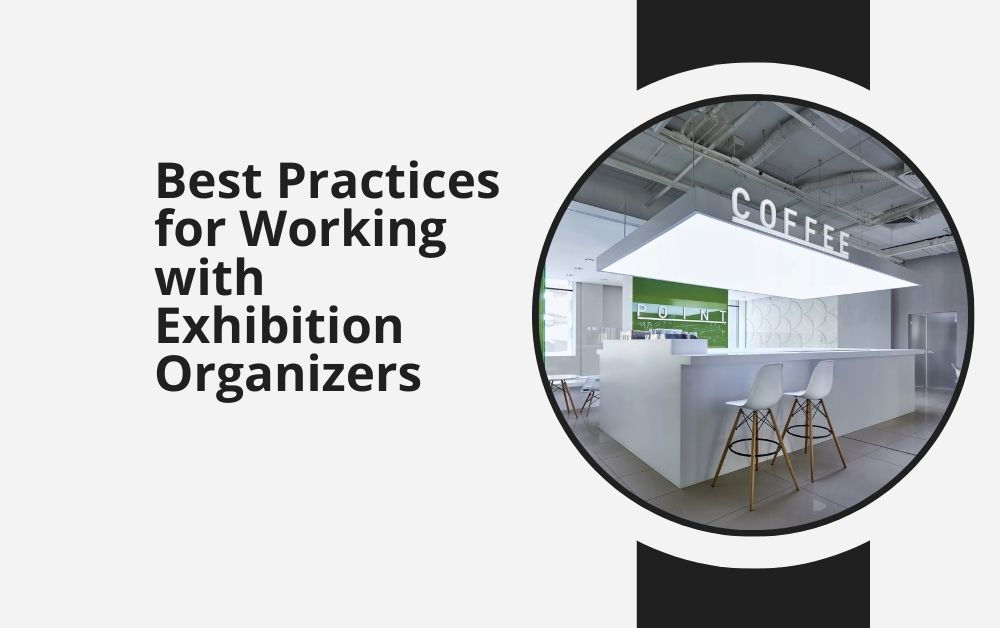Exhibitions are a fantastic way to showcase your business, products, or services. They offer a unique opportunity to engage with potential customers, network with industry peers, and gain valuable market insights. However, organizing and participating in an exhibition requires careful planning and coordination. To ensure a successful event, it’s essential to work effectively with exhibition organizers. This blog will guide you through the best practices for collaborating with exhibition organizers, making the process smoother and more productive.
Understanding the Role of Exhibition Organizers
Who Are Exhibition Organizers?
Exhibition organizers are professionals or companies responsible for planning, managing, and executing exhibitions. Their tasks include:
- Selecting the Venue: Choosing a location that is accessible and suitable for the event’s scale.
- Marketing the Event: Promoting the exhibition to attract exhibitors and attendees.
- Logistics Coordination: Managing the setup, breakdown, and overall flow of the event.
- Support Services: Providing necessary services such as registration, security, and customer support.
Why Are They Important?
Exhibition organizers play a crucial role in the success of an event. They handle many complex tasks, allowing exhibitors to focus on their presentations and interactions with attendees. Their expertise ensures that the event runs smoothly and efficiently.

Preparing for the Exhibition
Setting Clear Goals
Before you start working with exhibition organizers, it’s vital to have clear goals for your participation. Ask yourself:
- What do you want to achieve from this exhibition?
- Are you looking to generate leads, increase brand awareness, or launch a new product?
- How will you measure success?
Budgeting
Determine your budget for the exhibition. Consider all costs, including:
- Booth Space: The area you will occupy at the exhibition.
- Booth Design and Construction: Building and setting up your display.
- Marketing Materials: Brochures, flyers, and other promotional items.
- Travel and Accommodation: Expenses for your team to attend the event.
Selecting the Right Exhibition
Not all exhibitions will be suitable for your business. Research various events to find those that align with your industry and target audience. Consider:
- Audience Demographics: Who will be attending the event?
- Reputation of the Event: Is it well-known and respected in your industry?
- Location: Is the venue convenient for your team and potential customers?
NOTE:- If you’re planning an event and need expert assistance, consider partnering with the best exhibition organizers in Dubai. They can help you create a memorable and impactful exhibition experience. Contact us today to learn more about how we can support your next event!
Working with Exhibition Organizers
Communication is Key
Effective communication with the exhibition organizers is crucial. Keep in regular contact to stay informed about deadlines, requirements, and any changes. Here are some tips:
- Establish a Point of Contact: Identify a primary contact person within the organizing team.
- Regular Updates: Schedule regular meetings or calls to discuss progress and address any concerns.
- Ask Questions: Don’t hesitate to ask for clarification if you’re unsure about anything.
Understand the Rules and Regulations
Each exhibition will have its own set of rules and regulations. These may include guidelines on booth construction, marketing activities, and behavior during the event. Make sure you:
- Read the Exhibitor Manual: This document will outline all the important information you need to know.
- Follow the Guidelines: Adhering to the rules will help avoid any issues or penalties.
Plan Your Booth Design
Your booth is the focal point of your exhibition presence. It needs to be attractive and functional. Consider the following when designing your booth:
- Visual Appeal: Use bright colors, engaging graphics, and clear signage to attract attention.
- Layout: Ensure the layout allows for easy movement and interaction.
- Branding: Make sure your booth clearly represents your brand and its values.
- Interactive Elements: Include interactive displays or demonstrations to engage visitors.
Marketing Your Participation
Let people know you’ll be at the exhibition. Effective marketing can help attract more visitors to your booth. Here are some strategies:
- Social Media: Promote your participation on social media platforms. Use event hashtags to increase visibility.
- Email Newsletters: Send out newsletters to your contacts, informing them about your exhibition plans.
- Press Releases: Issue a press release to announce your participation and any special activities you have planned.
- Website Updates: Update your website with information about the exhibition and your booth location.
During the Exhibition
Engaging with Attendees
Your interaction with attendees is critical to the success of your exhibition participation. Here are some tips:
- Be Approachable: Smile, make eye contact, and greet visitors warmly.
- Have a Pitch Ready: Prepare a concise and engaging pitch to introduce your business.
- Demonstrations: If possible, demonstrate your products or services.
- Collect Contact Information: Have a system in place for collecting contact information from potential leads.
Managing Your Team
Your team plays a significant role in representing your business at the exhibition. Ensure they are well-prepared and motivated:
- Training: Provide training on how to engage with visitors and handle common questions.
- Roles and Responsibilities: Clearly define each team member’s role during the event.
- Breaks and Rotations: Schedule regular breaks to keep your team fresh and energetic.
Handling Logistics
Effective logistics management is essential for a smooth exhibition experience. This includes:
- Setup and Breakdown: Ensure you have enough time for both setting up and taking down your booth.
- Inventory Management: Keep track of your marketing materials, giveaways, and other items.
- On-Site Support: Have a plan for addressing any issues that may arise during the event.
After the Exhibition
Follow-Up with Leads
The exhibition doesn’t end when you pack up your booth. Follow-up is crucial for converting leads into customers:
- Send Thank You Emails: Express your appreciation to those who visited your booth.
- Personalized Follow-Up: Reach out to potential leads with personalized messages.
- Add to CRM: Enter new contacts into your Customer Relationship Management (CRM) system.
Evaluate Your Performance
Assessing your performance at the exhibition helps you understand what worked and what didn’t. Consider the following:
- Metrics: Review the goals you set and measure your performance against them.
- Feedback: Collect feedback from your team and visitors to identify areas for improvement.
- Lessons Learned: Document what you learned and how you can improve for future exhibitions.
Plan for the Future
Use the insights gained from the exhibition to plan for future events:
- Adjust Strategies: Make necessary adjustments to your strategies based on your evaluation.
- Stay in Touch: Maintain relationships with contacts made during the exhibition.
- Prepare for the Next Event: Start planning for your next exhibition early to ensure continued success.
Building Strong Relationships with Exhibition Organizers
Show Appreciation
A little appreciation can go a long way in building strong relationships with exhibition organizers:
- Thank You Notes: Send thank you notes to the organizing team.
- Positive Feedback: Provide positive feedback and testimonials if you had a good experience.
- Constructive Criticism: Offer constructive criticism to help them improve future events.
Be a Reliable Partner
Being a reliable and cooperative exhibitor can lead to better opportunities in the future:
- Meet Deadlines: Ensure you meet all deadlines for submissions and payments.
- Be Professional: Maintain a professional demeanor in all interactions.
- Provide Support: Offer to provide support or assistance if needed.
Conclusion
Working with exhibition organizers can significantly enhance your exhibition experience and contribute to your business’s success. By understanding their role, setting clear goals, communicating effectively, and following best practices, you can ensure a smooth and productive event. Remember, the key to a successful exhibition lies in preparation, execution, and follow-up. With these best practices, you’ll be well-equipped to make the most of your next exhibition opportunity.
For more insightful articles related to this topic, feel free to visit thegeneralpost.com
Rylan 2 in 1 Dumpling Maker Ghughra Momos Maker Machine, Skin Press Mould for Gujiya Ghughra Mould Machine, Kitchen Dumpling Making Tool with Dumpling Puri Maker(Design 1)
₹199.00 (as of 7 November, 2024 18:25 GMT +05:30 - More infoProduct prices and availability are accurate as of the date/time indicated and are subject to change. Any price and availability information displayed on [relevant Amazon Site(s), as applicable] at the time of purchase will apply to the purchase of this product.)nutripro Copper Juicer Mixer Grinder - Smoothie Maker - 500 Watts (3 Jars, Silver) - 2 Year Warranty
₹1,799.00 (as of 7 November, 2024 18:26 GMT +05:30 - More infoProduct prices and availability are accurate as of the date/time indicated and are subject to change. Any price and availability information displayed on [relevant Amazon Site(s), as applicable] at the time of purchase will apply to the purchase of this product.)Odonil Room Air Freshener Spray - 440ml Combo (Pack of 2, 220ml each) | Lavender Mist & Jasmine Fresh | Nature Inspired Fragrance for Home & Office | Long Lasting Fragrance
₹199.00 (as of 7 November, 2024 18:26 GMT +05:30 - More infoProduct prices and availability are accurate as of the date/time indicated and are subject to change. Any price and availability information displayed on [relevant Amazon Site(s), as applicable] at the time of purchase will apply to the purchase of this product.)iDensic Silicone Sipper Water Bottle For Adults With Motivational Time Marker & Leak Proof Non-Toxic Transparent Water Bottle For Office, Gym, School, Collage, Home (2 Litre)
₹339.00 (as of 7 November, 2024 18:25 GMT +05:30 - More infoProduct prices and availability are accurate as of the date/time indicated and are subject to change. Any price and availability information displayed on [relevant Amazon Site(s), as applicable] at the time of purchase will apply to the purchase of this product.)IDELLA Soft sillicon Super Absorbent Door Mats (40x60) Bath Mat Anti Skid Quick Drying Bathroom & Water Absorbent Carpets Kitchen Entrance Door Mats (1, Oval R)
₹129.00 (as of 7 November, 2024 18:25 GMT +05:30 - More infoProduct prices and availability are accurate as of the date/time indicated and are subject to change. Any price and availability information displayed on [relevant Amazon Site(s), as applicable] at the time of purchase will apply to the purchase of this product.)Discover more from The General Post
Subscribe to get the latest posts sent to your email.





